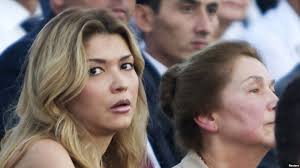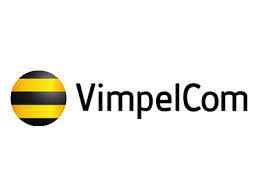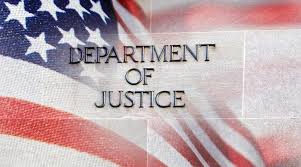Anatomy of MTS, Karimova and Akhmedov Bribery Scheme in Uzbekistan (Part II of III)

The MTS bribery scandal in Uzbekistan represents the culmination of several significant FCPA violations involving VimpelCom, Telia Sonera, MTS, and Gulnara Karimova, the notoriously corrupt daughter of the former Uzbek President. Karimova is perhaps one of the most notorious corrupt offenders in the world. She has been under house arrest in Uzbekistan since 2014. (Indictment Here).
According to MTS’ admissions, MTS and its subsidiaries, Uzdunrobita and Kolorit Dizayn Ink (“Kolorit”), paid approximately $420 million in bribes to Karimova who had significant influence of the Uzbek government and telecommunications regulators. The bribes were paid on several occasions during the eight-year period from 2004 to 2012.
The bribes were paid on multiple occasions – to enter the market, and to continue operating in the market. MTS and its subsidiaries structured the transactions through payments to shell companies that MTS and its local subsidiary, Uzdunrobita, knew were beneficially owned by Karimova.

MTS and Uzdunrobita also acquired Kolorit knowing that the price MTS paid was inflated in order to pay Karimova bribes in exchange for Uzdunrobita’s continuing to operate in Uzbekistan. Additionally, Uzdunrobita made payments to purported charities and sponsorship to entities that were controlled by Karimova. The Uzbek government expropriated Uzdunrobita in 2012 as a result of MTS’ failure to satisfy Karimova’s demands for additional bribery payments.
MTS booked the bribery payments falsely as acquisition costs, option payments, purchases of regulatory assets and charitable donations.
The criminal indictment against Karimova and MTS’ Uzbek executive, Bekhzod Akhmedov, outlined their roles in an $865 million bribery and money laundering scheme.
According to the indictment, Karimova demanded hundreds of millions in bribes from Telia Sonera, VimpelCom (now VEON) and MTS to acquire telecommunications licenses in Uzbekistan. Karimova’s father, Islam Karimova, was then president of Uzbekistan. He is deceased.
Akhmedov arranged the payment of the bribes to Karimova. The Justice Department alleged that Karimova laundered the bribe money through U.S. bank accounts. Karimova, as the daughter of the then-president of Uzbekistan, is considered a “foreign official” under the FCPA.
Bribery Payments

In the summer of 2004, MTS acquired 74 percent of Uzdunrobita by purchasing a 41 percent stake from a US company and a 33 percent stake from a Karimova-owned shell company. MTS knew that Karimova controlled the shell company. MTS paid $100 million for the shell company’s 33 percent stake, which was six times more per share than MTS paid the US company for a 41 percent stake. MTS knew that a portion of the payment to the Karimova-shell company was made in exchange for Uzdunrobita’s ability to operate in Uzbekistan. The Karimova shell company retained a 26 percent option that could be exercised at a price of $37 million.
Two years later, Karimova demanded to exercise the option at a market price much higher than $37 million price fixed in 2004. The amended price was agreed to in exchange for MTS’ continuing ability to operate in the Uzbek market. Eventually, MTS paid $250 million to the Karimova shell company.
During the review and consideration of this revised option agreement, a new MTS executive raised concerns about the transaction and the relationship between Karimova and the shell company. Citing public sources and reporting, the new MTS executive advocated for a due diligence investigation fo the shell company and determination of Karimova’s connection to the shell company. In response, MTS management restricted dissemination of the executive’s communications and specific concerns.

In response to the MTS executive’s concerns, MTS hired a US law firm to conduct due diligence of the shell company. Certain MTS management restricted the disclosure of information to the law firm concerning the shell company and the fact that certain MTS management knew that Karimova was the beneficial owner of the shell company.
In 2008, MTS and another Karimova shell company $30 million for shell company’s repudiation of certain telecommunications frequencies and reassignment to MTS’ subsidiary in Uzbekistan.
Eventually, the due diligence report confirmed Karimova’s interest in the shell company based on public reports. Despite this report, MTS moved forward with transactions involving the shell company. In securing board approval, MTS management did not disclose the due diligence report nor the true nature of the transaction.
In 2009, MTS acquired Kolorit, an Uzbek advertising company, at an inflated price of $39.6 million in order to compensate Karimova and continue to operate in the Uzbekistan market.

Internally, MTS management raised concerns about the valuation of Kolorit and Karimova’s beneficial ownership interest in Kolorit. An additional due diloigence investigation was conducted which cioncluded that it appeared that Karimova had a hidden ownership interest in Kolorit. Notwithstanding this issue, MTS management pushed through the transaction knowing that Karimova, in fact, owned Kolorit and would benefit from the transaction. MTS management did not provide information about the inflated valuation or Karimova’s alleged interest in Kolorit.
Finally, in 2012, MTS paid approximately $1.1 million in bribes to entities controlled by Karimova as charitable payments and sponsorship fees.















